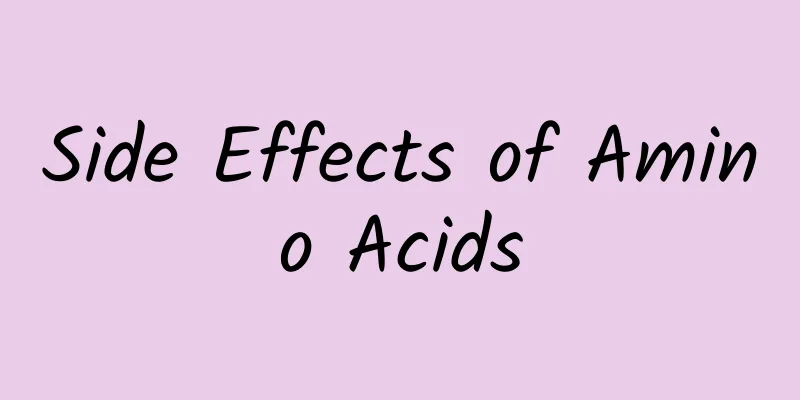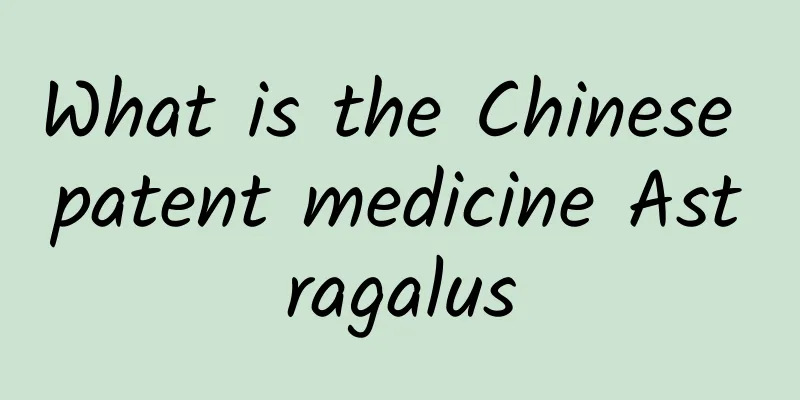Side Effects of Amino Acids

|
What are the side effects of amino acids? Many people are not very clear about this. It is helpful to the human body, but it can also cause some damage to human health. Therefore, when choosing it, it should be used in moderation. For patients with diabetes, its choice also has many functions. For example, it can prevent acute hepatitis and prevent all aspects of the body from being harmed. It is also very helpful in this regard. So what are the specific side effects of amino acids? The following is a detailed introduction so that you can have a good understanding of it. When choosing, you can rest assured that it will not cause any harm to human health. Side effects of amino acids: Amino acids are used to regulate blood sugar, in diet therapy for diabetes, to prevent and treat liver dysfunction caused by acute hepatitis, and to replenish protein loss caused by physical weakness after illness and various diseases. However, many people are still worried about the side effects of amino acids. The side effects of amino acids are introduced in detail below. The first side effect of amino acids: causing obesity. Amino acids are suitable for patients with protein deficiency and weakness, liver and kidney failure, and muscle weakness. If the person is normal and has sufficient nutrition, excessive protein or amino acids in the body will cause obesity. The second side effect of amino acids: causing physical discomfort. It is not suitable for consumption by healthy teenagers and children with normal digestive ability. All medicines are poisonous. Various discomforts are inevitable after consumption. The third side effect of amino acids: a high-protein diet will increase the incidence of diabetic nephropathy. Amino acids belong to a high-protein diet and excessive consumption can lead to diabetes. Pharmacological effects of various amino acids: Amino acids have different metabolic effects in infants and adults. When using ordinary amino acid infusion, the activity of phenylalanine hydroxylase in infants and young children is low, which makes them prone to hyperphenylalaninemia. It also causes tyrosine deficiency; Because of low cystathionase activity, hypermethioninemia is likely to occur; The synthesis rate of histidine is slow, which can easily lead to hypohistidinemia; High glycine levels can cause high blood ammonia levels. Therefore, when infants and young children use amino acid infusion, the dosage of phenylalanine, methionine, and glycine should be reduced, and the dosage of cysteine, tyrosine, and histidine should be increased, so that the plasma amino acid profile can remain normal. This product adapts to the metabolic characteristics of infants and young children, reduces the dosage of phenylalanine, methionine, and glycine, increases the dosage of cysteine, tyrosine, and histidine, and meets the nutritional needs of children. Everything has two sides, if there is a good side there is also a negative side. Through the above introduction, we have a good understanding of the side effects of amino acids, so when choosing it, we must choose it in moderation, especially for patients with diseases, they cannot use it casually, otherwise it will cause great damage to their own health. And for patients with diabetes, the diet must also be reasonably matched. |
<<: Vitamin E acne scar removal
>>: The role and efficacy of Angelica
Recommend
Doping can turn athletes into super soldiers? Why is it so powerful?
How hard do athletes fight to win Olympic gold me...
What are the medicinal values of white peony?
Speaking of white wormwood, I believe many people...
Effects and functions of Hengzhou Linderae
As we all know, Hengzhou Wuyao is a very common m...
"Tianmo chip" boosts the "acceleration" of intelligence! Another major breakthrough in Tsinghua chip!
Recently, the brain-like computing research team ...
What are the effects of Di Ren?
Di Ren is a kind of plant Chinese medicine with h...
What are the effects and functions of Angelica and Astragalus and how to eat them?
Although the current living standards are constan...
If you don't read these social security knowledge, you will suffer losses sooner or later
One minute with the doctor, the postures are cons...
What are the uses of processed Shouwu
The shape of processed Polygonum multiflorum is q...
What are the effects, functions and contraindications of French Pinellia?
Pinellia ternata is one of the traditional common...
What are the medicinal values of wasps?
Wasps are a kind of insect. Many people avoid was...
Which kind of Cistanche deserticola is good?
We all know that there are many types of Cistanch...
What would you see if you dismantled 300 nuclear power plants?
2022 The world's first artificial nuclear rea...
Pictures and effects of insect building
Chonglou is a specialty of Yunnan. In nature, it ...
Rural people eat so much that they want to vomit, while city people want to eat but cannot buy it
Mud mustard greens is a wild forage grass that gr...









